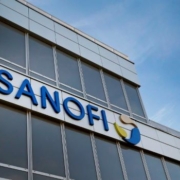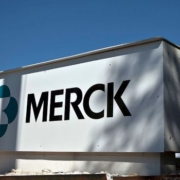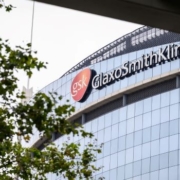AbbVie got off to a strong start for 2022, driven by success from Skyrizi and Rinvoq, as well as the company’s neuroscience platform that includes the company’s depression treatments and its three-pronged approach to migraine.
Sanofi reported a series of first-quarter 2022 wins, driven mostly by the success of consumer healthcare (CHC) and the company’s blockbuster Dupixent.
Merck makes waves in Q1 2022 with COVID-19 treatment, cancer portfolio
Breakthrough Therapy Designation, Business, COVID-19 Therapeutic, COVID-19 Therapeutics, COVID-19 Therapies, Earnings per share (EPS), Financials, Forecasts, Keytruda, Market Share, Merck, Pneumococcal Conjugate Vaccines, Pneumococcal Vaccines, Sales, TherapeuticsMerck announced the company’s Q1 2022 results, reporting year-over-year revenue growth of 50 percent from continuing operations, with worldwide sales increasing to $15.9 billion. As anticipated, Merck’s COVID-19 antiviral treatment Lagevrio (molnupiravir) played a role in the company’s robust sales.
Eli Lilly’s lucrative Q1 2022 driven by Trulicity and COVID-19 antibodies
Alzheimer’s disease, Bamlanivimab (LY-CoV555), Bebtelovimab (LY-CoV1404; LY3853113), Business, COVID-19 Antibodies, Diabetes, Diabetes drugs, Earnings per share (EPS), Eli Lilly, Etesevimab (Lilly), Financials, Forecasts, Obesity, Obesity, Sales, Therapeutics, TrulicityEli Lilly had a lucrative first-quarter 2022, with revenue growth rising 15 percent driven by sales of the company’s diabetes drug Trulicity and its COVID-19 antibodies.
GSK’s strong Q1 driven by COVID-19, returning demand for shingles vaccine
Antibodies, Business, Business Intelligence, Consumer Health Care, Consumer Healthcare, Coronavirus Disease 2019 (COVID-19), Earnings per share (EPS), Financials, GlaxoSmithKline, Guidance, Leadership, Operations, Presentations, Quarterly results, Sales, Sales, Sales & Marketing, Sales Guidance, Shingles, Strikes, Therapeutics, VaccinesGlaxoSmithKline exceeded expectations for the company’s first-quarter 2022 sales and earnings forecasts. This was largely driven by GSK’s sales of Xevudy, an antibody treatment against COVID-19 it developed with Vir Biotechnology, and the company’s Shingrix vaccine against shingles.
AbbVie Leans on Skyrizi, Rinvoq as Humira Rides off the Patent Cliff
AbbVie, Acquisitions, Atopic Dermatitis, Autoimmune Disorders, Biopharma Companies, Biosimilars, Blockbusters, Business, Crohn's Disease, Forecasts, Humira, Loss of exclusivity (LOE), Psoriatic Arthritis (psA), Quarterly results, Sales, Therapeutics, Topline Data, Ulcerative ColitisAbbVie reported the company’s fourth-quarter 2021 and full-year financial results on Feb. 2, with worldwide net reviews up 7.4% to $14.89 billion for the quarter. Total revenues for 2021 were $56 billion. The company’s anchor product remains Humira, which will begin to lose exclusivity in 2023.
Amgen Chairman and Chief Executive Officer Robert Bradway anticipates the non-small cell lung cancer drug Lumakras will become a cornerstone medicine as the company aims to develop multiple medications for targets long thought to be undruggable.
Eli Lilly’s stock prices ticked up following the company’s announcement of strong quarterly sales and positive Phase III results in severe atopic dermatitis.
Novartis boss Vas Narasimhan expects higher sales and profitability for 2020, lifted by the company’s broad range of medicines, and minimal disruption to the Swiss drugmaker’s supply chain from the coronavirus outbreak in China.
Bayer AG and Johnson & Johnson agreed to settle more than 25,000 U.S. lawsuits over the companies’ blockbuster blood thinner Xarelto for a total of $775 million, court documents showed.








